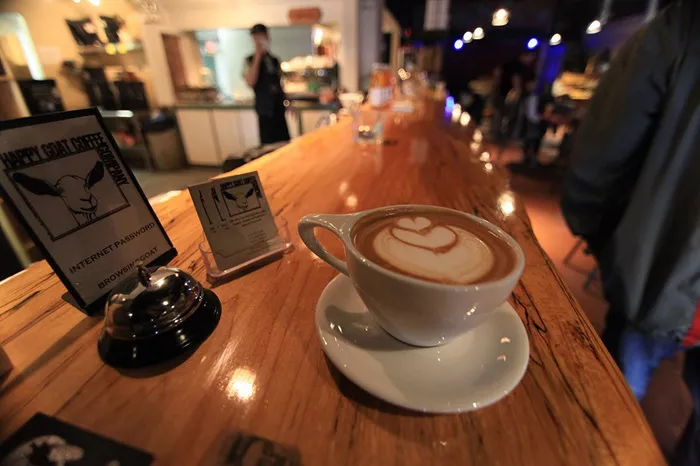Cold brew coffee has gained immense popularity in recent years, and one of its most notable characteristics is its strength. Many coffee lovers describe it as bold, smooth, and highly caffeinated compared to traditional hot-brewed coffee. But what exactly makes cold brew so strong? The answer lies in the brewing process, chemical extraction, and the way caffeine and other compounds interact when coffee is steeped in cold water over an extended period. To fully understand why cold brew packs such a punch, we need to explore the science behind coffee extraction, caffeine concentration, and how our bodies process it.
The Science of Coffee Extraction
Coffee extraction is the process of dissolving flavors, oils, and caffeine from coffee grounds into water. The temperature of the water, brewing time, and grind size all play crucial roles in determining how much of these compounds end up in your cup. Hot brewing methods, such as drip coffee or espresso, use near-boiling water to quickly extract flavors and caffeine. In contrast, cold brew relies on time rather than heat, allowing for a slower, more controlled extraction.
When hot water is used, it rapidly breaks down coffee grounds, releasing acids, bitter compounds, and caffeine in a matter of minutes. However, cold water is much less efficient at dissolving these substances, which means the extraction process takes significantly longer—usually between 12 to 24 hours. Despite the slower extraction, cold brew often ends up with a higher caffeine concentration because the extended steeping time allows more caffeine to be pulled from the grounds. Additionally, cold water extracts fewer acidic compounds, resulting in a smoother, less bitter taste that can make the coffee seem even stronger because the caffeine isn’t masked by harsh flavors.
Caffeine Content: Cold Brew vs. Hot Coffee
One of the biggest misconceptions about cold brew is that it always contains more caffeine than hot coffee. The truth is more nuanced. While cold brew concentrate can be extremely potent, its final caffeine content depends on how it’s prepared and diluted. A typical cold brew is made with a higher coffee-to-water ratio than hot coffee—often double or even triple the amount of grounds. This concentrated brew is then diluted with water or milk before drinking, but even after dilution, it can still pack a stronger caffeine punch than a standard cup of hot coffee.
For example, an 8-ounce cup of hot drip coffee usually contains between 80 to 100 milligrams of caffeine, while the same amount of cold brew (after dilution) can range from 100 to 200 milligrams. If consumed as a concentrate without dilution, cold brew can easily exceed 300 milligrams per serving. This difference is why many people feel a more intense energy boost from cold brew—it simply has more caffeine per ounce when prepared in its traditional form.
The Role of Chemical Compounds in Cold Brew Strength
Beyond caffeine, other chemical compounds contribute to cold brew’s strength and unique profile. Chlorogenic acids, which are natural antioxidants found in coffee beans, break down differently in cold versus hot brewing. Hot coffee tends to have higher levels of certain acids that can make the drink taste sharper and more acidic. Cold brew, on the other hand, retains more of the smoother, mellower compounds while still extracting a substantial amount of caffeine.
Another factor is the solubility of different coffee components. Caffeine dissolves well in both hot and cold water, but many bitter-tasting compounds, such as tannins, are less soluble at lower temperatures. This means cold brew extracts more of the desirable flavors and caffeine while leaving behind some of the harsher elements. The result is a coffee that tastes strong without being overly bitter, giving the impression of a cleaner, more potent brew.
How the Body Processes Cold Brew Caffeine
The way our bodies absorb caffeine from cold brew also plays a role in its perceived strength. Some studies suggest that cold brew may lead to a slightly slower caffeine absorption rate compared to hot coffee, which can create a more sustained energy boost rather than a sudden spike and crash. However, because cold brew often contains more caffeine overall, the total effect can still feel stronger.
Additionally, the lower acidity of cold brew makes it gentler on the stomach, allowing people to drink larger quantities without discomfort. This can lead to higher caffeine intake without the usual side effects like heartburn or jitters, further reinforcing the idea that cold brew is exceptionally strong.
Brewing Methods and Their Impact on Strength
Not all cold brews are created equal. The strength of the final product depends heavily on the brewing method. A coarse grind is typically used for cold brew to prevent over-extraction and bitterness, but a longer steeping time compensates for the reduced surface area. Some brewers opt for a 1:4 coffee-to-water ratio for a concentrate, while others use a 1:8 ratio for a ready-to-drink product. The longer the steep and the higher the coffee-to-water ratio, the stronger the brew will be.
Commercial cold brew products often undergo additional filtration and processing to enhance smoothness and caffeine concentration. Some brands even use nitrogen infusion to create a creamy, stout-like texture that further amplifies the rich, strong flavor.
Conclusion
Cold brew’s strength comes from a combination of factors—longer extraction times, higher coffee-to-water ratios, and the selective dissolution of caffeine and flavor compounds in cold water. While it’s not inherently stronger than hot coffee in every case, its preparation methods often result in a higher caffeine concentration and a smoother taste that enhances its potency. Whether you enjoy it as a morning pick-me-up or an afternoon refresher, understanding the science behind cold brew can help you appreciate why it stands out as one of the strongest and most flavorful coffee options available.
Related topics:
Bodum Cold Brew Coffee: A Healthful & Flavorful Experience
Espresso Cold Brew Coffee: A Fusion of Bold Flavor and Smooth Refreshment
Cong Cafe: A Culinary and Coffee Haven


